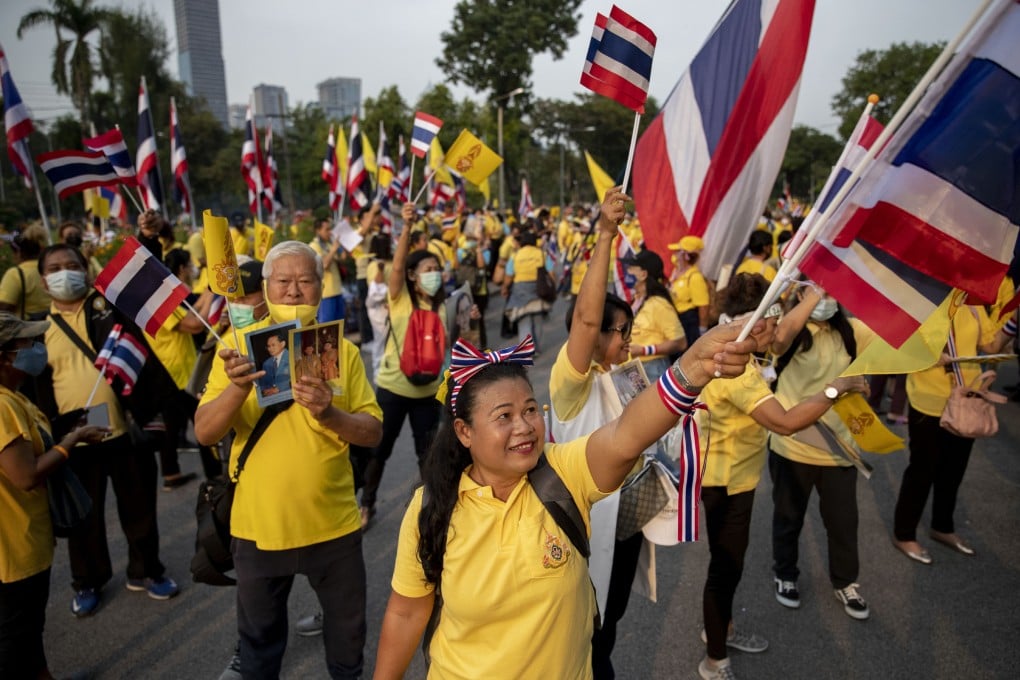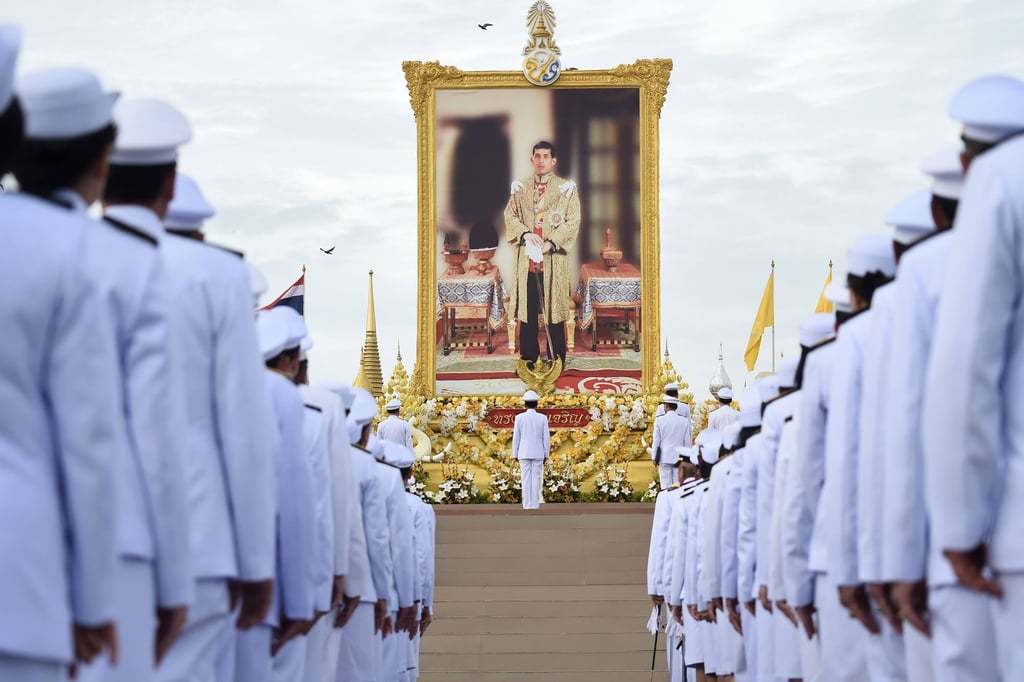Ukraine war: Thai royalists turn from King Maha Vajiralongkorn to defending Russia’s Putin as pro-democracy camp condemns bloodshed
- Royalists’ backing of Vladimir Putin and his war in Ukraine partly stems from a ‘knee-jerk reaction’ to the Thai pro-democracy movement’s censure, critics say
- But it also highlights the conspiratorial thinking of conservative groups who view US-led efforts with scepticism and see democracy as a threat to the monarchy

In recent weeks, the Facebook page of royalist group Thai Move Institute has been flooded with posts about the downside of sanctions imposed on Russia, and reports of questionable veracity – many from a website styling itself as “The Truth” – saying that Ukraine used fake news to “slander” Putin.
The group’s motto is “Thailand’s direction upon the royal footsteps”. It is part of a network of conservative voices allied to the military and royalist establishment led by Prime Minister Prayuth Chan-ocha.

Domestic divide
Critics say Thailand’s royalists came out in favour of Putin either as “knee-jerk reaction” to the opposition’s stance on the war, or a result of long-held resentments towards the US, which some Thais perceive as a threat to the country’s monarchy.